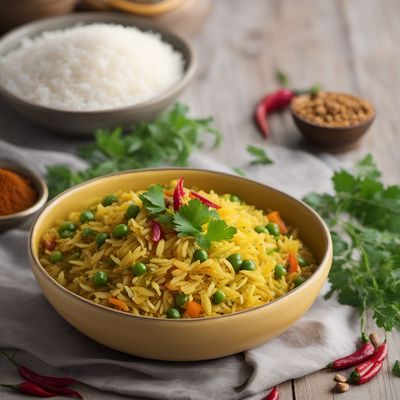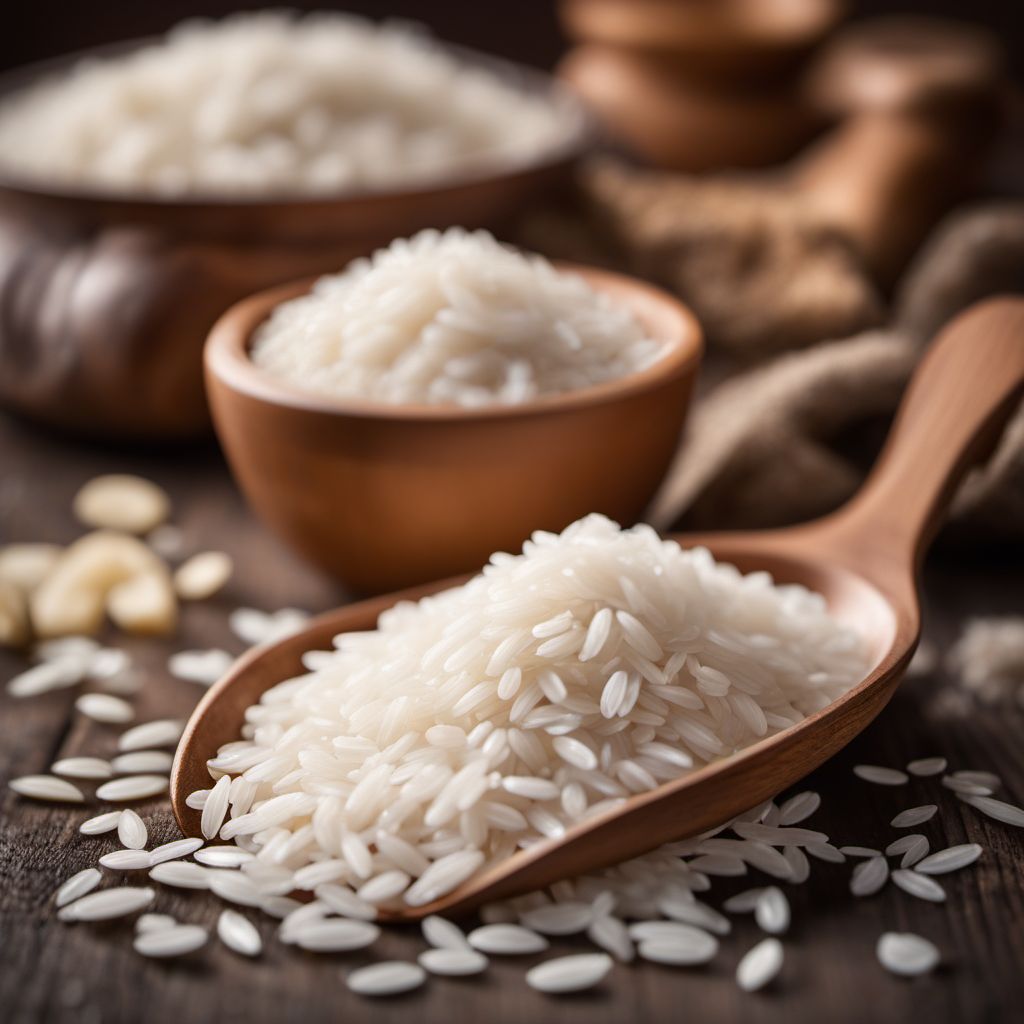
Ingredient
Processed rice-based flakes
Crispy Delights: Unveiling the Magic of Rice-Based Flakes
Processed rice-based flakes are made from rice grains that have been cooked, flattened, and dried to create thin, crispy flakes. These flakes have a light and delicate texture, with a satisfying crunch that adds a unique element to dishes. They are typically white or light yellow in color and have a neutral taste, allowing them to easily absorb the flavors of other ingredients. Whether used as a topping, coating, or ingredient in recipes, rice-based flakes provide a delightful texture and enhance the overall eating experience.
Origins and history
Rice has been a staple food in many cultures for centuries, and the process of making rice-based flakes has been practiced for generations. The exact origin of rice-based flakes is unclear, but they are commonly used in Asian cuisines, particularly in countries like India, China, and Japan. In these regions, rice-based flakes have been traditionally used in dishes like poha, a popular Indian breakfast dish, and rice-based snacks like rice crackers and rice crispy treats.
Nutritional information
Rice-based flakes are low in fat and calories, making them a healthy choice for those watching their weight. They are also gluten-free and a good source of carbohydrates, providing energy for the body.
Allergens
Rice-based flakes are generally allergen-free, but individuals with rice allergies should avoid them.
How to select
When selecting rice-based flakes, look for flakes that are evenly flattened and have a crisp texture. Avoid flakes that are discolored or have a stale smell. Opt for brands that use high-quality rice grains and have a reputation for producing consistent and fresh flakes.
Storage recommendations
To maintain the freshness and crispness of rice-based flakes, store them in an airtight container in a cool, dry place. Avoid exposure to moisture, as it can cause the flakes to become soft and lose their crunchiness.
How to produce
While it is not practical for amateurs to produce rice-based flakes at home, they can be made by cooking rice grains, flattening them using a rolling pin or a specialized machine, and then drying them thoroughly. This process requires specialized equipment and expertise, making it more suitable for commercial production.
Preparation tips
Rice-based flakes can be used in a variety of ways. They can be sprinkled over salads, soups, or stir-fries to add a crispy texture. They can also be used as a coating for fried or baked dishes, providing a crunchy crust. Additionally, rice-based flakes can be mixed with melted chocolate or caramel to create delicious treats. To enhance their flavor, lightly toast the flakes in a dry pan before using them in recipes.
Substitutions
Cornflakes or crushed crackers can be used as substitutes for rice-based flakes, providing a similar crispy texture and neutral taste.
Culinary uses
Rice-based flakes are commonly used in dishes like poha, a traditional Indian breakfast dish made with flattened rice flakes, spices, and vegetables. They are also used in rice crispy treats, where they are mixed with melted marshmallows and shaped into bars. Additionally, rice-based flakes can be used as a coating for fried chicken or fish, providing a crispy and flavorful crust.
Availability
Rice-based flakes are commonly available in Asian grocery stores and online retailers. They are also produced by various food manufacturers and can be found in supermarkets in regions where Asian cuisines are popular.
More ingredients from this category

Processed wheat-based flakes
Wholesome Wheat Crunch

Processed rye-based flakes
Crunchy Rye Delights

Processed oat-based flakes
Wholesome Crunch: Exploring the World of Processed Oat-Based Flakes
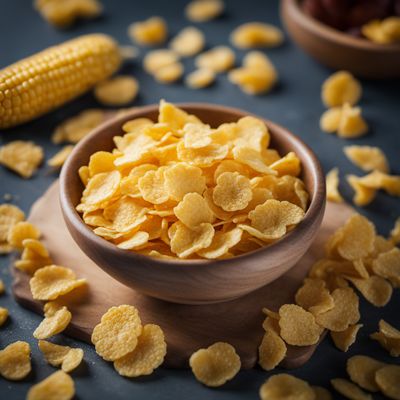
Processed maize-based flakes
Golden Crunch: Unveiling the World of Maize-Based Flakes
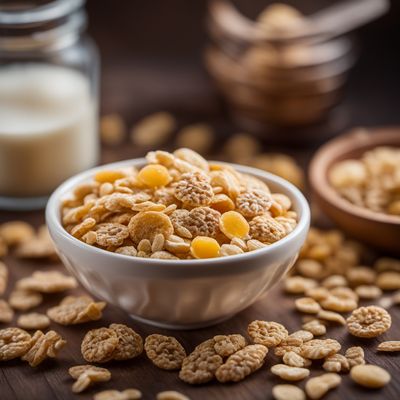
Processed mixed cereal-based flakes
Wholesome Breakfast Delight
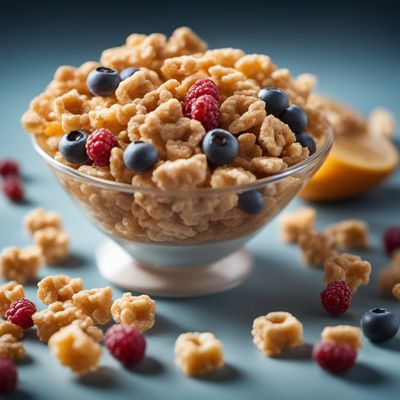
Extruded breakfast cereal products
Crunchy Morning Delights

Processed barley-based flakes
Nutrient-packed Barley Flakes


